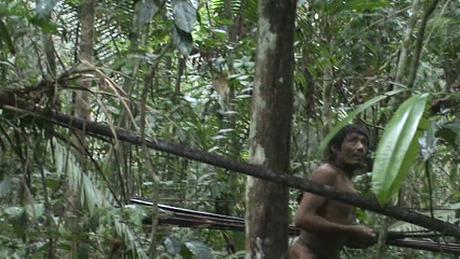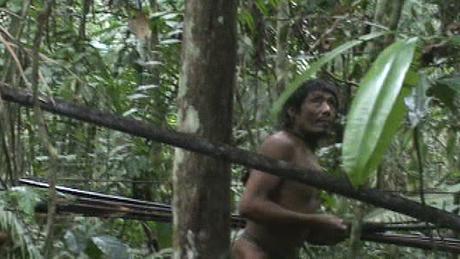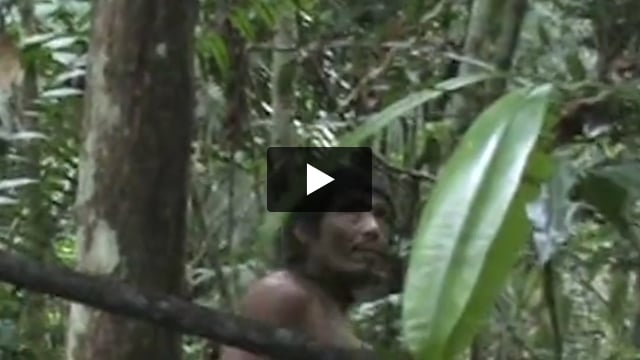Brazil: land rights for the uncontacted Kawahiva?
April 8, 2025
 © FUNAI
© FUNAIIn May 2024 Brazil’s Supreme Court ordered FUNAI, the government’s Indigenous affairs department, to present a timetable for demarcation of the Kawahiva do Rio Pardo territory, home to uncontacted Kawahiva people.
FUNAI confirmed in a public meeting held on March 14 that the demarcation will happen by the end of 2025.
The clock is counting down. FUNAI confirmed the existence of the uncontacted Kawahiva people in 1999. In 2016, the Ministry of Justice published a decree setting out the limits of the territory – yet full recognition of their land rights has dragged on, mired in bureaucracy and legal challenges.
Throughout this huge delay land grabbers, loggers and cattle ranchers have invaded the territory, posing huge threats to the tribe. The Kawahiva – nomadic hunter-gatherers who rely totally on the forest and rivers for their livelihood and well-being – clearly reject contact.
Two Extractive Reserves with high levels of deforestation and land grabbing surround the Kawahiva Indigenous territory. Countless environmental crimes are reported in the Extractive Reserves, including illegal logging and land grabbing. In just five years almost 10,000 hectares of forest has been destroyed in just one of the Extractive Reserves. Cattle ranching, the next stage after deforestation, is already established in some areas.
Now there is a new threat: a road parallel to the southern border of the Kawahiva’s territory which is only three kms away. It is due to be paved, which will attract more settlers and land grabbers. Roads are the main catalysts for colonization and deforestation in the Amazon.
Jair Candor, head of FUNAI’s regional ethno-environmental protection front, told Brazil’s Globo newspaper that uncontacted peoples need “a demarcated and protected territory in order to survive. As they are peoples who have decided to live in isolation, they need good environmental conditions to feed themselves and be safe from contact with invaders. Without protected land they cannot survive.”
The National Security Force is active in the region because of land conflicts which included an attack by armed gunmen on FUNAI’s Rio Pardo base in October 2023.
Survival – and Indigenous organizations which include COIAB (Coordenação das Organizações Indígenas da Amazônia Brasileira), FEPOIMT (Federação dos Povos e Organizações Indígenas de Mato Grosso), along with allies OPAN (Operação Amazônia Nativa) and Opi (Observatório dos Povos Indígenas Isolados) – are campaigning for FUNAI to demarcate the Rio Pardo territory urgently as presidential elections are scheduled for next year. During those campaigns Indigenous territories are frequently targeted by land grabbers and farmers, as politicians incentivize or turn a blind eye to invasions in return for support for their campaigns.
Please act now to support the Kawahiva.




